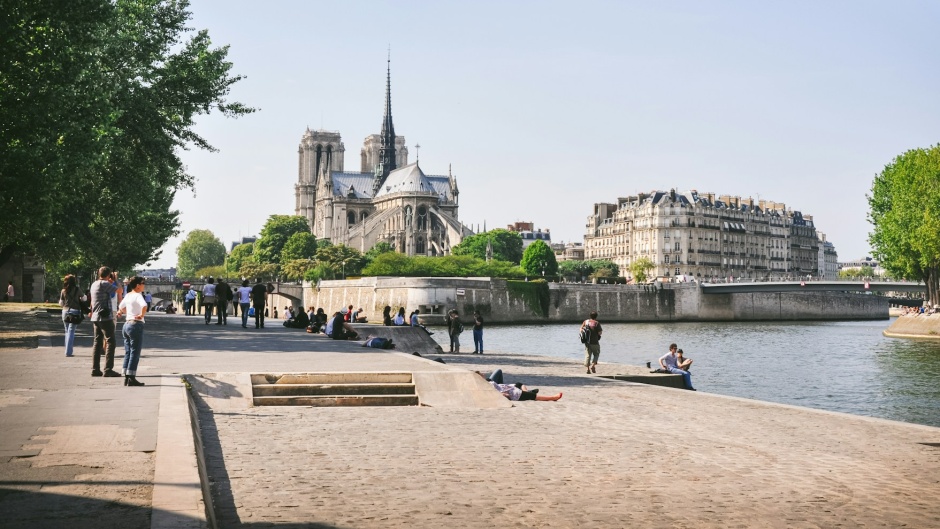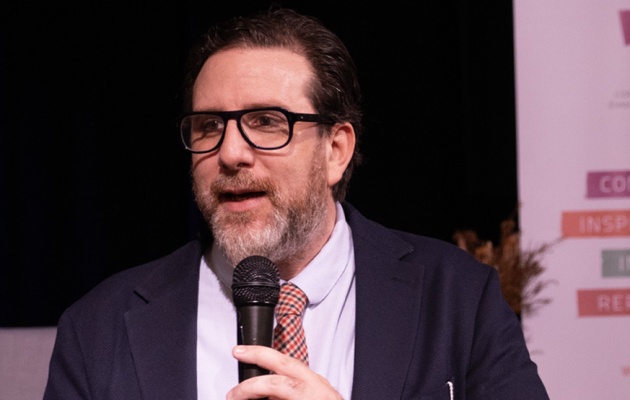France will have to move forward by bringing diverse people together, a challenge that evangelicals welcome
There is no data yet on how Christians voted, but after 7 July, Protestants say they want a France where all sensibilities are respected.
PARIS · 09 JULY 2024 · 14:41 CET

After the elections, no one is quite sure what the recipe will be for forming a government that earns the support of the new Assemblée Nationale, France’s national parliament.
Everything pointed to a clear victory for the nationalist hard right of Rassemblement National (led by Marine Le Pen and represented by its young face, Jordan Bardella), but the strategic cordon sanitaire of President Emmanuel Macron’s centrists and the left-wing coalition Nouveau Front Populaire led by Jean-Luc Mélenchon achieved an unexpected success: taking the first and second place in the final vote on Sunday 6 July.
The national parliament is now divided into three (radical left, centre and radical right), and the most visible leaders of each bloc have clashed bitterly in recent years over how to deal with rising prices, strikes, the future of pensions and the debate over the country’s identity.
.jpg)
Supporters of the Nouveau Front Populairse celebrate the victory in the French election, 7 July 2024. / Photo: Facebook LFI. Evangelicals want to be actors of reconciliation and hospitality
“Politics cannot do everything. Evangelical Protestants know this: they place their ultimate hope in God and look forward to a Kingdom of peace to come”, said on social media Romain Choisnet, spokesman for the National Council of Evangelicals in France (CNEF), the day after the elections. “But, moved by their faith, they act according to their hope to be, in today’s society, ferments of peace, seeds of life, actors of reconciliation and hospitality”.
La politique ne peut pas tout. Les protestants évangéliques le savent : ils placent leur espérance ultime en Dieu et se tiennent dans l’attente d’un Royaume de paix à venir.— Romain CHOISNET (@comcnef) July 8, 2024
Differences over immigration and the role of Islam have helped the rise of ‘Lepenism’ in France. The CNEF, which seeks to give a voice to 745,000 evangelicals in the country (many of which have foreign roots), has underlined that the freedom of minorities is an “indivisible good” that “cannot be claimed for some and denied to others”.
Macron’s own steps in the name of laicité and the fight against religious radicalism have raised unfair suspicions around the work of evangelical churches, the CNEF laments.
Respect for every person
“Evangelical Protestants may take a variety of approaches to issues relating to policing, respecting and defending borders, migration or military matters”, emphasised the evangelical entity before the elections, “but we believe that the state should in all circumstances keep as its priority respect for the human person and the pursuit of peace for all”.
This focus on the protection of the most disadvantaged is also an element highlighted in the document Convictions des evangéliques en France 2024.

Erwan Cloarec, president of the National Council of Evangelicals in France. / Photo: CNEF. So, who did the evangelicals vote for?
At this stage, it is impossible to assess how French evangelicals voted in this election. Unlike in the UK, where a survey asked estimated how many evangelicals would have supported the new prime minister, Keir Starmer, there is no data in France.
Erwan Cloarec, president of the CNEF, insisted in Reforme magazine that each Christian “must choose the most suitable candidate according to his convictions and his local context” and that their role was solely to “provide food for thought but without offering ready-made solutions”.
In responses to Evangelical Focus, historian and evangelicalism expert Sebastien Fath could neither identify a clear trend, although he pointed to the general disappointment of evangelical churches with Macron, for reasons which include his liberal pushes on issues such as euthanasia and abortion.
A strong evangelical vote for the left-wing alliance seemed unlikely because of the parties’ positions on gender, bioethics and their strong pro-Palestinian stance. On the other side, a vote for the exclusionary nationalism championed by Roman Catholic sectors also seemed unlikely.
Protestant Federation against “nauseating racism”
But some Protestant entities in France have taken a specific stance. This is the case of the French Protestant Federation (FPF), which represents a variety of Protestant churches, including the more theologically liberal ones.
Three days before the final second vote, the FPF lamented that “cultural dikes have broken, releasing a nauseating wave of racist, anti-Semitic and xenophobic hate speech”.
Retrouvez le communiqué de presse de la FPF, “Élections : il est temps de faire front contre l’esprit de division !”.
Plus de détails sur notre site web.#Législatives2024 https://t.co/tFC2Ifomqq— Fédération protestante de France (FPF) (@FPFCom) July 4, 2024
While not explicitly mentioning the RN, the Paris-based Protestant body expressed its “hope for a democratic awakening to prevent our country, its most vulnerable citizens and our European neighbours from being destabilised by a France governed by an extreme party intent on undermining fundamental freedoms and human rights”.
Churches as a model of coexistence
Other Christian organisations with a more explicit action focus, such as A Rocha, which promotes creation care and species conservation, expressed in an article on Christianity Today fears about the “rise of a party [referring to RN] which has seduced voters by promising short term relief, while scapegoating migrants and largely ignoring longer term issues such biodiversity loss”
Rachel Calvert, the NGO’s president, emphasised that “many French evangelical churches bring together people from diverse political, ethnic, and socioeconomic backgrounds”, and that this is a sign that “God who is reconciling all things to himself in Jesus”.
One more year
Learn all about our #OneMoreYearEF campaign here (English).
Published in: Evangelical Focus - europe - France will have to move forward by bringing diverse people together, a challenge that evangelicals welcome
